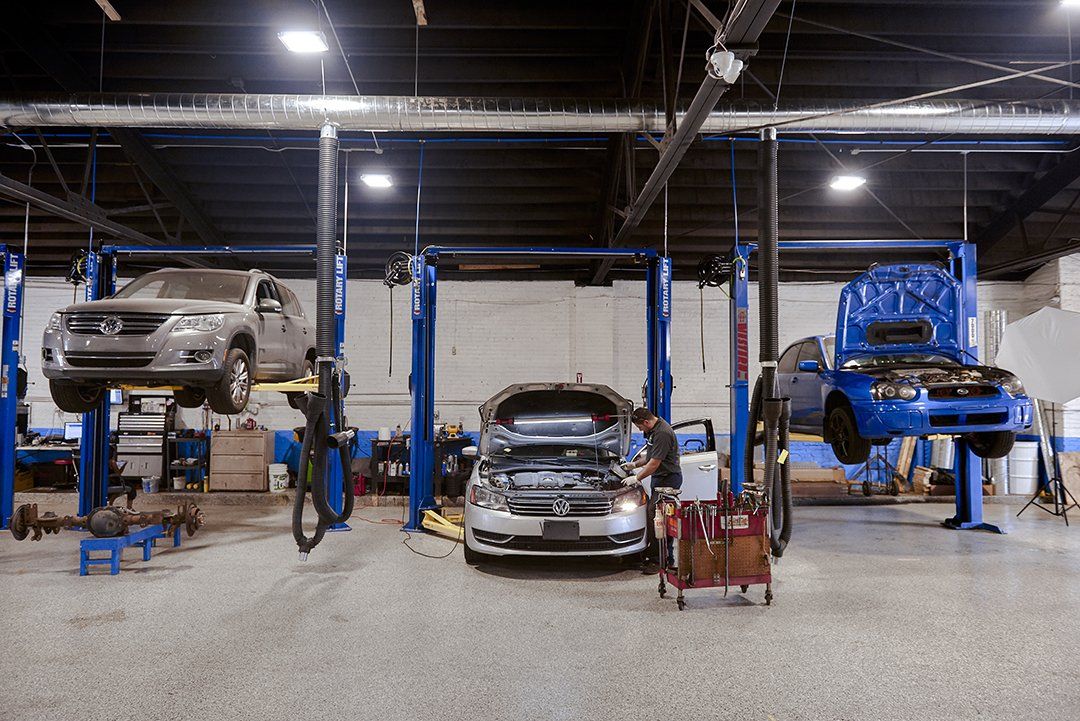Understanding Your Vehicle's Suspension System
Your car's suspension system plays a crucial role in ensuring a smooth ride and optimal handling. It is responsible for absorbing shocks, keeping your tires in contact with the road, and maintaining stability while driving. A well-maintained suspension system improves your car's safety and comfort. However, like all components of a vehicle, it can wear out over time, and damage can lead to a range of issues.
Common Causes of Suspension Damage
Several factors can cause suspension damage, including:
- Rough Road Conditions: Driving on uneven, pothole-ridden, or poorly maintained roads puts excessive stress on the suspension system.
- Worn-out Parts: Components like shocks, struts, and bushings naturally wear down over time, leading to suspension issues.
- Accidents: A collision, even a minor one, can damage the suspension system, particularly if the impact is directly related to the wheels or frame.
- Improper Vehicle Maintenance: Failing to address minor issues, like misaligned wheels or worn-out tires, can accelerate suspension wear and tear.
Signs of Suspension Damage to Watch For
Recognizing the symptoms of suspension damage early can help prevent further damage and costly repairs. Here are some common signs to look out for:
- Uneven Tire Wear: Suspension damage can cause uneven wear on your tires. If you notice that one side of your tire is worn down more than the other, it could be a sign of suspension problems.
- Rough Ride: If your vehicle feels unusually bouncy, stiff, or unstable while driving, particularly on smooth roads, your suspension system may be damaged.
- Pulling to One Side: A damaged suspension may cause your vehicle to pull to one side while driving, even if the road is straight.
- Drifting or Swaying: If your car drifts or sways when you take turns, it may indicate issues with the suspension system's ability to maintain stability.
- Excessive Noise: Clunking, banging, or creaking sounds coming from the suspension, especially when driving over bumps, are common signs of wear or broken parts.
- Leaking Fluid: Some suspension systems have hydraulic components that can leak fluid if damaged. Any signs of fluid leaks near the wheels or under the vehicle should be inspected immediately.
How Suspension Damage Affects Your Vehicle's Performance
When your suspension system is damaged, it impacts several critical areas of your vehicle's performance, including:
- Handling: A compromised suspension system affects how your vehicle responds to steering and turns, making it harder to control, especially in emergency situations.
- Braking: Damage to the suspension can also affect braking performance, as the system works in tandem with the tires and brakes to bring your vehicle to a stop.
- Ride Comfort: Suspension damage leads to a rough and uncomfortable ride. It can be more noticeable when driving over bumps, dips, or rough roads.
- Safety: A damaged suspension system can reduce the effectiveness of your vehicle's safety features, including airbags and stability control, increasing the risk of accidents.
What to Do If You Suspect Suspension Damage
If you suspect that your vehicle's suspension is damaged, it is crucial to have it inspected and repaired as soon as possible. Driving with suspension issues can lead to more extensive damage and put your safety at risk.
A professional mechanic will inspect your suspension system, looking for signs of wear, damaged components, and signs of fluid leakage. They may recommend replacing worn-out parts or performing a full suspension system overhaul, depending on the extent of the damage.
Preventing Suspension Damage
While some suspension damage is inevitable due to wear and tear, you can take steps to minimize the risk and prolong the life of your suspension system:
- Avoid Potholes: Try to steer clear of potholes and road debris when driving to reduce stress on the suspension system.
- Regular Maintenance: Regular inspections of your suspension system and other vehicle components can help catch problems early and prevent further damage.
- Drive Responsibly: Avoid aggressive driving, such as hard braking, sharp turns, or fast acceleration, which can strain your suspension system.
- Check Tire Alignment: Keeping your wheels aligned can help prevent uneven tire wear and reduce the strain on your suspension system.
Conclusion
Your vehicle’s suspension system is crucial for your comfort, handling, and safety. If you notice signs of suspension damage, it’s important to have it inspected and repaired as soon as possible to avoid further complications. Regular maintenance and proactive driving habits can also help extend the lifespan of your suspension system.
If you need professional suspension repairs or an inspection, contact us today for assistance. Don’t wait until minor suspension issues become major problems—schedule an appointment and ensure your vehicle is ready for the road ahead.

